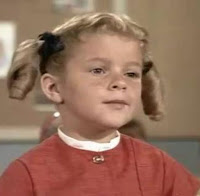 |
| Hayley Mills, her castmates, and some spotty special effects. |
Set in the late 19th century, Castaways features Hayley as Mary Grant, an adventurous teenager who sets out with her young brother and a French professor to find her shipwrecked father and his mates. The professor believes he knows the father's location based on a note found in a bottle inside a dead shark. The ever-charming Mary convinces her father's employer, a shipping magnate, to finance the search. Of course, it helps that the gentleman has a son who takes an immediate interest in Mary.
 |
| Maurice Chevalier with Hayley. |
Like Disney's earlier classic 20,000 Leagues Under the Sea (1954), Castaways was based on a Jules Verne novel, albeit a less famous one. In tone, though, this family adventure shares more with Disney's Swiss Family Robinson (1960), which starred Hayley's father John.
Don't set your sights too high and you'll likely enjoy In Search of the Castaways. Despite the many dangers encountered during the expedition, there's never any doubt that Hayley and Co. will always emerge unscathed and the climatic reunion is a given. An added bonus is the presence of screen veterans like Maurice Chevalier, Wilfrid Hyde-White, and a scene-stealing Wilfrid Brambell as a prisoner plotting an escape from the cannibals. Brambell later starred in the British TV comedy Steptoe and Son, which inspired the U.S. series Sanford and Son.
 |
| The poster looks a little scary.... |
It's a surprisingly engrossing story of a tiger that escapes from its cage when a circus truck stops in a small town for a tire repair. One of the big cat's handlers, who has mistreated the animal, tries to track it down--and ends up mauled to death by the frightened tiger.
Despite the efforts of the local sheriff (Brian Keith), politicians and journalists try to exploit the tiger for their own means. Even the sheriff's daughter gets unwittingly involved when she makes a plea for the animal's life during an on-location TV appearance. Her involvement leads to a nation-wide campaign fueled by school children to "Save the Tiger."
 |
| Pamela Franklin and Kevin Corcoran. |
The cast is uniformly fine with Keith, Vera Miles, and Pamela Franklin (The Nanny) as the family at the center of the incident. It was the last film appearance for Sabu, who plays a kind-hearted tiger trainer.
























